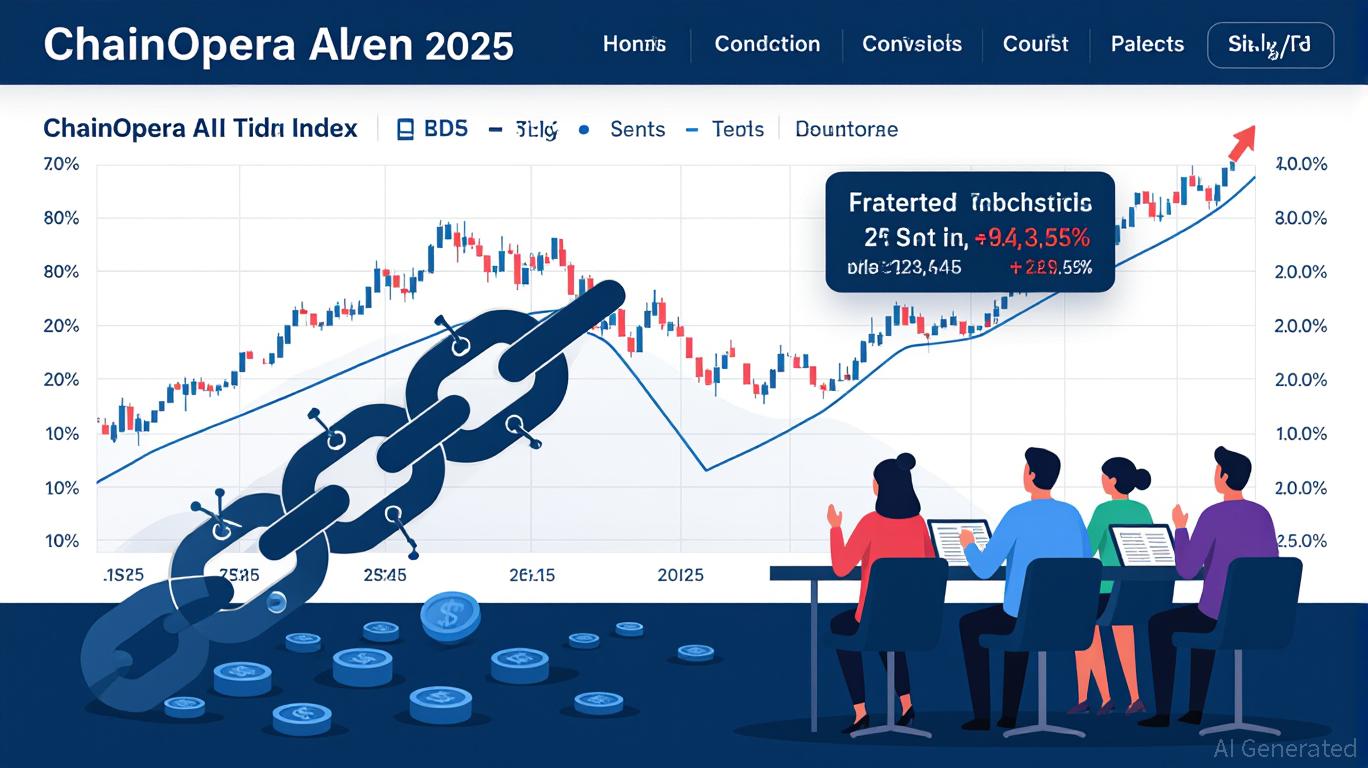Hyperliquid News Today: DeFi 'Degen Warfare' Erupts: POPCAT Exploit Results in $4.9M Loss for Hyperliquid
- Hyperliquid suffered a $4.9M loss from a POPCAT token manipulation attack orchestrated by a single trader exploiting thin liquidity and automated risk systems. - The attacker used 19 wallets to inflate POPCAT's price before liquidity removal triggered cascading liquidations, forcing Hyperliquid's HLP to absorb remaining losses. - POPCAT's price dropped 19% in 24 hours to $0.1262, exposing vulnerabilities in DeFi platforms' ability to prevent market manipulation in low-liquidity memecoin markets. - This f
Hyperliquid, a prominent decentralized derivatives platform, incurred a $4.9 million loss following a coordinated manipulation of the POPCAT token, according to insights from blockchain analytics and on-chain investigators, as

The exploit took advantage of POPCAT’s limited liquidity and automated risk controls, with the attacker’s $3 million collateral being liquidated within seconds of the price crash, as
POPCAT’s value plunged 19% in a single day to $0.1262, deepening its year-to-date decline to over 91%, as
This is not Hyperliquid’s first encounter with market manipulation. In March 2025, a similar exploit targeting the JELLYJELLY memecoin forced the HLP to shoulder $12 million in unrealized losses, as
Market observers have dubbed the POPCAT episode “peak degen warfare,” a phrase that captures the bold, high-stakes strategies seen in the unpredictable memecoin sector, as
Hyperliquid’s HYPE token, which is central to the platform, has dropped below important technical thresholds, with analysts warning of further declines if the $35 support is lost, as
This incident highlights persistent weaknesses in DeFi platforms, where leverage and liquidity mismatches can intensify systemic threats. As speculation in memecoins increases, platforms like Hyperliquid may face mounting demands to balance decentralization with effective protections against market manipulation, as
Disclaimer: The content of this article solely reflects the author's opinion and does not represent the platform in any capacity. This article is not intended to serve as a reference for making investment decisions.
You may also like
U.S. Debt Fluctuations Surge Amid AI-Driven Borrowing Growth and Fed Faces Fiscal Uncertainty
- U.S. Debt Volatility Index hits one-month high in November, reflecting market anxiety amid government shutdown resolution and fiscal risks. - AI infrastructure debt surges 112% to $25B in 2025, driven by tech giants’ $75B in bonds for GPU/cloud projects, raising overleveraging concerns. - Fed faces mixed signals: October job losses push December rate cut odds to 68%, while gold/silver rise 2-3% as investors seek safe havens amid fiscal/geopolitical risks. - Delayed economic data from shutdown complicates

ChainOpera AI Token Plunge: An Alert for Investors in AI-Based Cryptocurrencies
- ChainOpera AI Index's 54% 2025 collapse exposed systemic risks in AI-driven crypto assets, driven by governance failures, regulatory ambiguity, and technical vulnerabilities. - C3.ai's leadership turmoil and $116.8M loss triggered sell-offs, while the CLARITY Act's vague jurisdictional framework created legal gray areas for AI-based crypto projects. - Model Context Protocol vulnerabilities surged 270% in Q3 2025, highlighting inadequate governance models as 49% of high-severity AI risks remain undetected

Navigating the Dangers of New Cryptocurrency Tokens: Insights Gained from the COAI Token Fraud
- COAI token's 2025 collapse exposed systemic risks in algorithmic stablecoins, centralized governance, and fragmented regulatory frameworks. - xUSD/deUSD stablecoins lost dollar peg during liquidity crisis, while 87.9% token concentration enabled panic selling and manipulation. - Regulatory gaps pre-collapse allowed COAI to exploit loosely regulated markets, but post-crisis reforms like MiCA and GENIUS Act now demand stricter compliance. - Investor sentiment shifted toward transparency, with demand for re

Filecoin (FIL) to Bounce Back? This Emerging MA Fractal Setup Suggests So!
